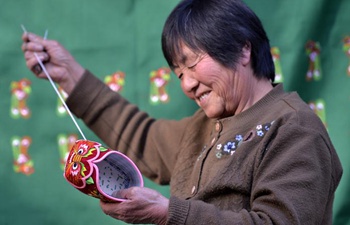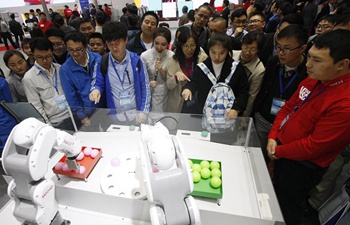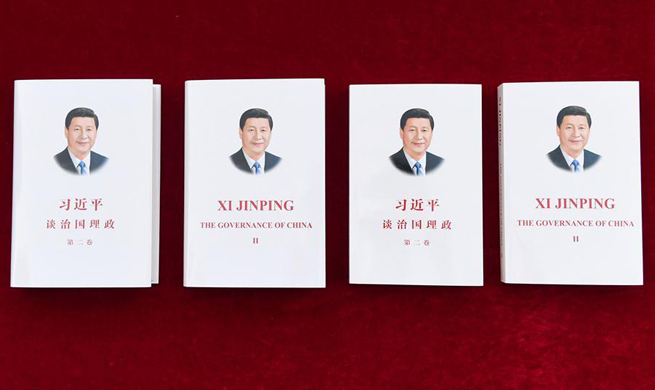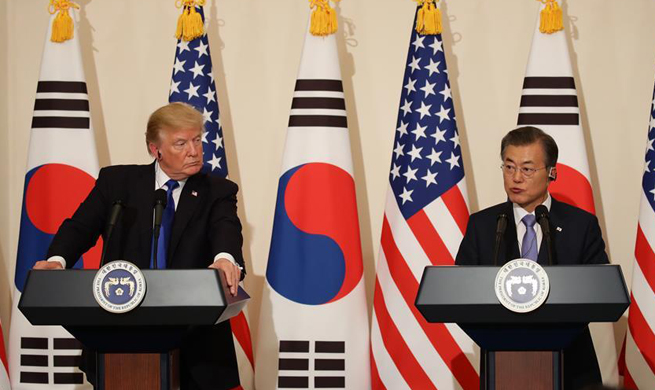BEIJING, Nov. 8 (Xinhua) -- U.S. President Donald Trump starts his first state visit to China Wednesday, becoming the first visiting head of state since the 19th National Congress of the Communist Party of China (CPC).
"China will promote coordination and cooperation with other major countries and work to build a framework for major country relations featuring overall stability and balanced development," Chinese President Xi Jinping, who is also general secretary of the CPC Central Committee, said in his report to the congress held in October.
Ruan Zongze, executive vice president of the China Institute of International Studies, believes both countries are at a stage when they can advance their relationship.
"On the one hand, a balanced major-country relationship between China and the United States requires all-round interaction and cooperation in various areas and at different levels, including culture, military, law enforcement, people to people, and between top level and local administrations," Ruan said. "On the other hand, balanced China-U.S. relations mean that China has an equal say in deciding what kind of major-country relationship should be built as its counterpart does."
The China-U.S. relationship is indeed being pushed forward in a more balanced way. Extensive exchanges and communication occurred after the first Xi-Trump summit at the Mar-a-Lago resort in the United States in April when the two countries decided to establish four high-level dialogue platforms: the diplomatic and security dialogue, the comprehensive economic dialogue, the law enforcement and cybersecurity dialogue, and the social and people-to-people dialogue.
The two leaders reaffirmed commitment to expanding cooperation in various fields and agreed to maintain close high-level exchanges at their second meeting on the sidelines of a Group of 20 summit held in Hamburg in Germany this July.
They have maintained frequent dialogue through meetings, telephone conversations and letters since the new U.S. administration took office in early 2017, setting a constructive tone for developing bilateral ties.
At the CPC National Congress, China pledged to be more open to the world through more liberalization and facilitation of trade and investment, and significantly easing market access for foreign investors.
The measures will strengthen economic and trade cooperation between China and the rest of the world, especially the United States.
As China's second largest trading partner, the United States has benefited from China's growing openness and prosperity. According to a report from the U.S.-China Business Council, China purchased 165 billion U.S. dollars in goods and services from the United States in 2015, and the number is growing rapidly. It also shows that 2.6 million U.S. jobs are supported by China-US bilateral trade.
The CPC National Congress has made a design for China's diplomacy in the new era, highlighting a new form of international relations featuring mutual respect, fairness, justice and win-win cooperation.
Ruan said China-U.S. interaction was one of the most important relationships in international relations and would set a model for a new type of relationship with other countries.
China and the United States, both veto-wielding permanent members of the UN Security Council, have no option but to collaborate as the world is beset with challenges and disorder, including rising protectionism and populism, the lingering impact of the 2008 global financial crisis, and the spread of terrorism and refugee crises.
Concerted efforts by the two powers to maintain world peace and stability, and boost global prosperity will be not only in the interest of the two countries, but also live up to the expectations of people around the globe.

















